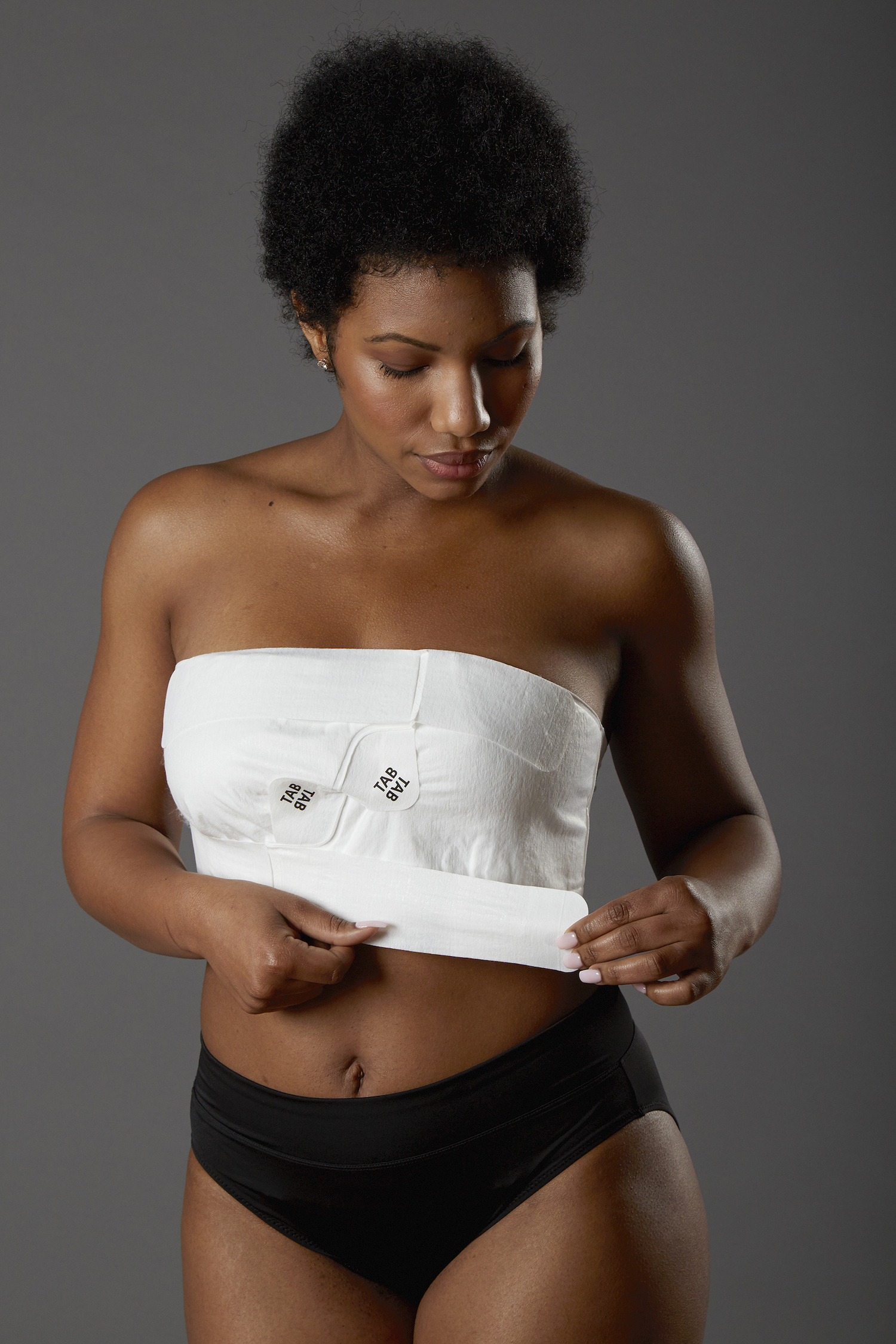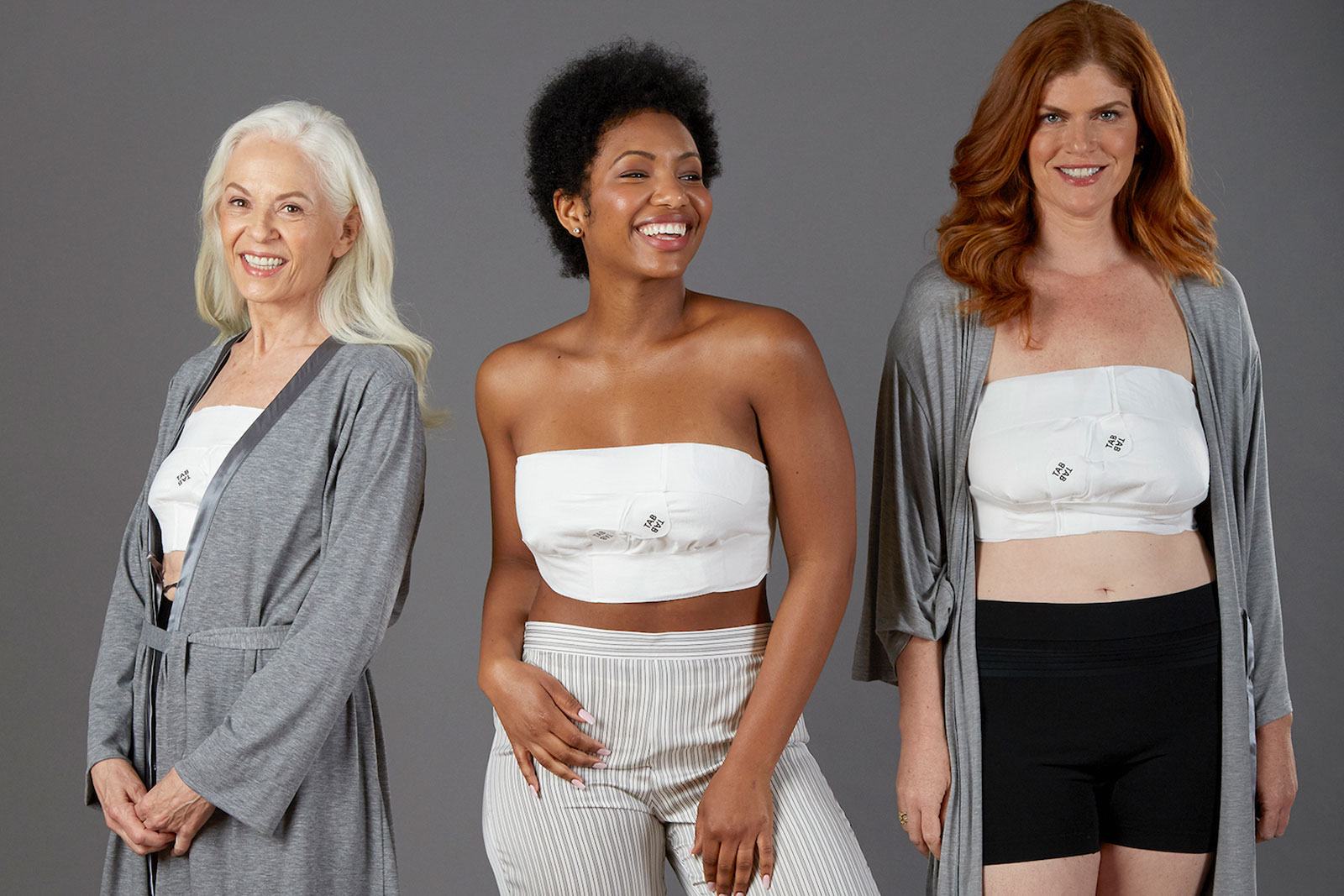“I cannot solve the need to have surgery, I cannot make it less painful, but I can offer [a] more feminine, and more elegant, and more hygienic day-to-day life experience during this hard time,” says Efrat Roman, founder and CEO of EZbra. The EZbra is revolutionizing breast cancer surgery recovery by providing efficient bandages that accommodate any type of surgery and any size bust.
As a breast cancer survivor herself, as well as descending from a family of BRCA-gene carriers (Roman’s mother, grandmother and her grandmother’s five sisters were all diagnosed with breast cancer), Roman was able to draw on personal experience when designing her product. “For me, it began with the most simple questions and challenges that I was facing,” she says, noting the dependency on caregivers after surgery which can lead to feelings of embarrassment, frustration or feeling like a burden. “[I] realize that the unnecessary challenges that women have to go through during the recovery [are] horrible. It’s not only unnecessary and avoidable, it’s degrading.”
Roman was diagnosed with cancer in 2009. “It doesn’t matter how prepared you are,” Roman says. “A cancer diagnosis is always confronting you with the end of the world.” Roman underwent a double mastectomy followed immediately by reconstructive surgery and chemotherapy. After experiencing complications after surgery, she knew there must be a better way to recover.
The EZbra addresses post-surgery discomfort in a number of ways. Roman developed the prototype with Yael Gibor, a graduate of industrial design who also had a personal connection to cancer. “She came with a lot of knowledge,” Roman says. “More important than that, [she had] a lot of understanding of the physical and mental challenges that a patient will have to face.” The EZbra’s unique design eliminates itchiness and irritation, and due to the non-adhesive, moveable straps that lay on both sides of the body, it can accommodate any type of breast cancer surgery (from double mastectomies to lumpectomies to reconstruction and everything in between) and any size bust (the EZbra is available in three adjustable sizes). It’s also remarkably easy to put on and take off, meaning the wearer is able to change their dressing by themselves, which helps eliminate any potential embarrassment.

Roman notes a startling statistic: a 2016 German study published in the journal Psycho-Oncology found 82.5 percent of women diagnosed with early-stage breast cancer suffer from symptoms of Post-Traumatic Stress Disorder, more commonly known as PTSD. The breast surgery trauma can lead some patients to experience flashbacks, feelings of detachment, sudden outbursts of anger and other symptoms. Roman believes innovations like the EZbra can help bring these numbers down, by bringing dignity to recovery. “I’ve heard so many women say they left their femininity, or a part of their femininity, in the OR (operating room),” she says. “[And] having to recover with a sense of humiliation and disgust and itchiness and [feeling] uncomfortable […] all those kinds of things are so unnecessary.”
The EZbra addresses all of these concerns. It’s absorbent, easy to position on the body and super adjustable. After making adjustments to the prototype, Roman looked to the greater breast cancer community for feedback. “[I] asked my survivor friends and fighter friends to come and try it on. [It was] a very inspiring process,” she says. “Then we started consulting with surgeons, plastic surgeons, nurses, radiologists and all the rest, [so] we know that we have succeeded in creating a device that gives a very good solution to both the patient and the health care provider.”
Before EZbra, Roman founded the first social commerce platform for breast cancer fighters and survivors called CureDiva. It allowed people in the breast cancer community to connect with each other online, and it was her initial foray into the world of FemTech, a slightly cloying denomination referring to start-ups and technological initiatives focusing on women’s health. Initiatives that, according to Roman, “in the past were referred to as not important enough, because it’s only for women [and] not spoken about because [they are] women’s issues.”
The EZbra is something Roman would have appreciated while she was recovering from breast cancer surgery; a much-needed piece of equipment that can help take away some of the stigma and trauma of surgery for breast cancer. “What I was going through or what I was feeling, it’s not because I was too sensitive or too complicated or something like that, [but experiencing] an unnecessary challenge that women have to go through,” Roman says.
EZbra estimates that a recovery period requires between five to 10 EZbras; visit EZbra.net to make a purchase and learn more. Use code CancerWellness25 for a 25% discount on your order. Valid until 8/31/20.







